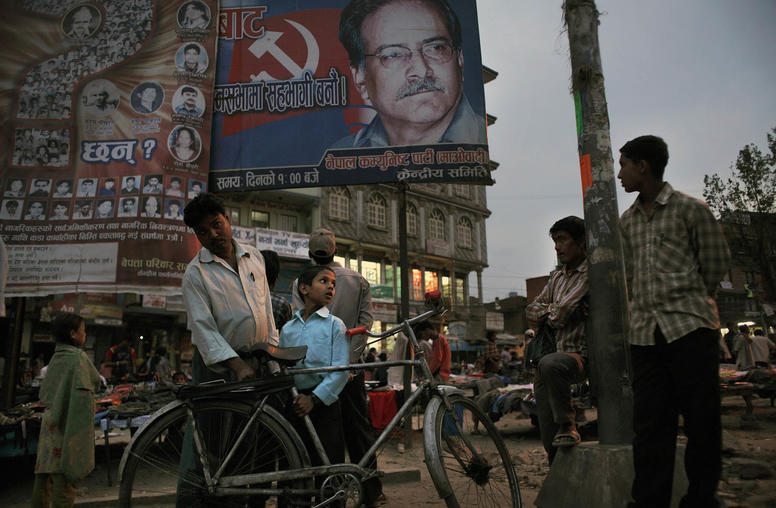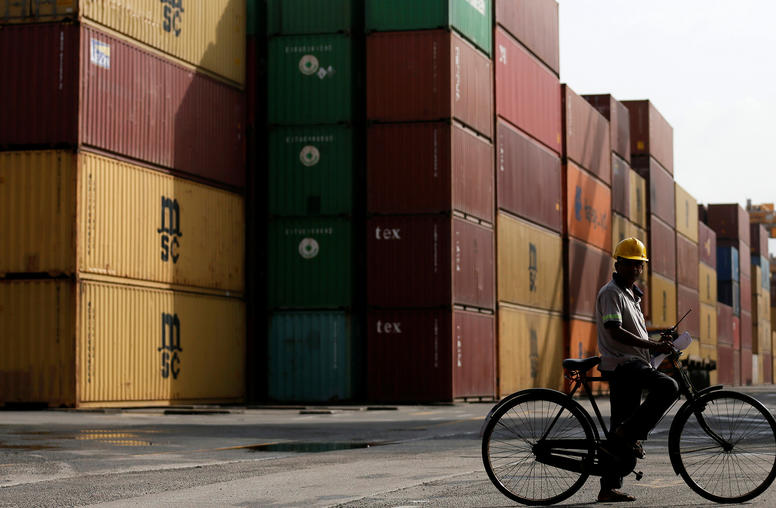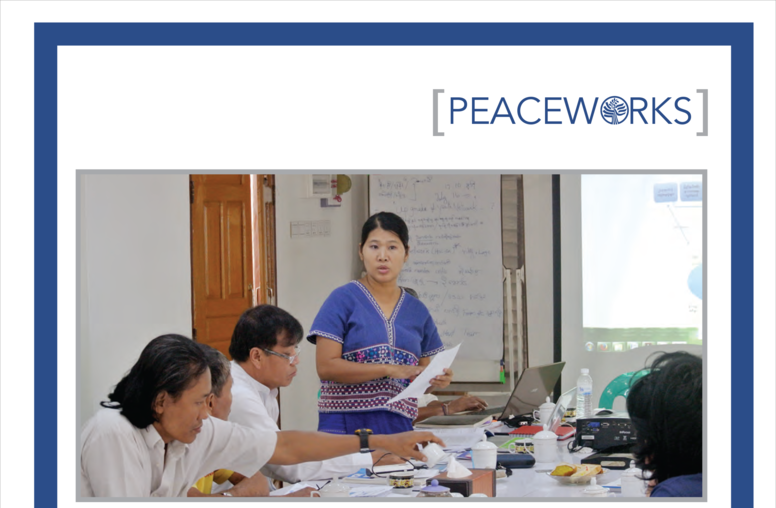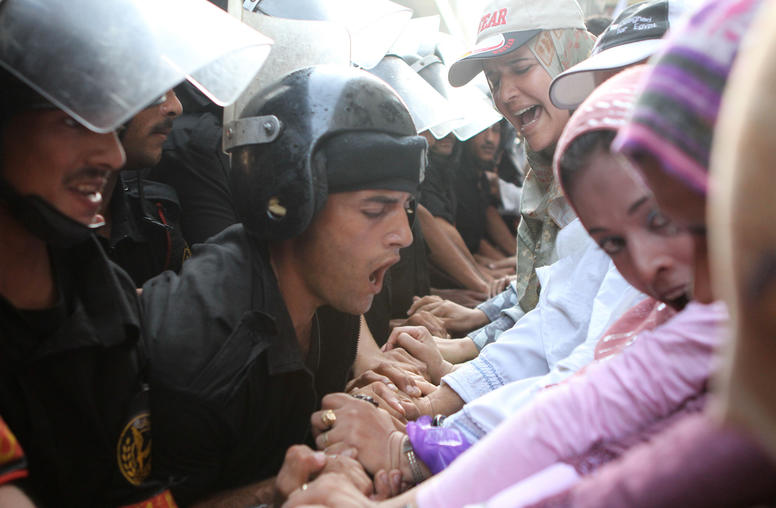USIP has been working in Nepal since 2006 to strengthen security and the rule of law through dialogue. As part of programming funded by the State Department’s Bureau of International Narcotics and Law Enforcement Affairs (INL) and USIP, USIP brought together members of youth groups, political parties, civil society and the Nepal Police in December 2009 for a dialogue session in the volatile city of Biratnagar. USIP national project adviser Shobhakar Budhathoki reports on the outcome.
By: Shobhakar Budhathoki
UPDATE: February 2012
Since the formation of the Birat Youth Forum (BYF), they have continued to meet to address security issues involving youth, as well as to hold awareness programs regarding the promotion of education. With the establishment of a common platform for youth and student groups, bandhs (general strikes that disrupt all services) significantly decreased, as most had been carried out or 'enforced' by youth and student groups prior to the BYF. The Nepal Police and the BYF worked together to promote traffic and road safety, awareness on the dangers of drug use, and the police worked with the BYF for the students to start a 'prison visit' program in which the BYF would talk with prisoners about civic responsibility and education. The BYF has also provided a consistent opportunity for former political rivals to establish lines of communication, share information, and meet frequently, all of which greatly reduced confrontation between student and youth wings of political parties. The BYF also shared the challenges and successes of working together with a delegation from Iraq who were starting their own Justice and Security Dialogue process in Kirkuk. While there have been bumps in the road, with political motivations threatening to dissolve the cooperation between students and youth, the BYF has overcome these challenges and continue to meet regularly, demonstrating that the USIP programs for the BYF and their dedication have developed a culture of collaboration among the youth.
****
Three years after the signing of the November 2006 Comprehensive Peace Agreement (CPA) that ended a decade-long conflict, authorities in Nepal still struggle to maintain security and the rule of law. Despite attempts at a peaceful transformation, the country’s security situation appears to be worsening. General lawlessness has increased exponentially, and the emergence of armed “political” groups has adversely affected daily life in most of the country.
Public life has been significantly interrupted due to continuous strikes, protests and road blockades. Unfortunately, many of these activities are either carried out directly by political party actors or instigated for political or monetary benefit through the parties’ sister organizations, including student and youth groups, that often take the law into their own hands. Security in the Terai/Madhes, the low land area adjacent to the Indian border, has been particularly threatened due to increasing cross-border criminal elements and organized criminal groups. Abductions, murder, and extortion, and disruption of basic services have all become a daily part of life. As a result, the number of internally displaced people (IDPs) is on the rise as people flee areas of insecurity.
.jpg) Although the Nepal Police has much of the professional capability and competency to handle ongoing challenges to security, they have difficulty carrying out their activities as they continue to rely on outdated operation guidelines and unclear institutional instructions and face a lack of cooperation from other agencies. Moreover, they face increasing political interference and inadequate public, logistical, financial and material support.
Although the Nepal Police has much of the professional capability and competency to handle ongoing challenges to security, they have difficulty carrying out their activities as they continue to rely on outdated operation guidelines and unclear institutional instructions and face a lack of cooperation from other agencies. Moreover, they face increasing political interference and inadequate public, logistical, financial and material support.
As a part of efforts, funded in part by the State Department's Bureau of International Narcotics and Law Enforcement Affairs, to strengthen security and the rule of law through dialogue between stakeholders including the Nepal Police, District Administration Office, political parties, civil society and the community, the United States Institute of Peace (USIP) established an open and independent center, the Security and Rule of Law Dialogue Center (SLRDC), in the eastern Terai city of Biratnagar. The SLRDC, supported with funding from the State Department’s International Narcotics and Law Enforcement Bureau (INL), provides a safe space for discussion that aims to collectively address issues related to security and the rule of law in Morang District and resolve disputes at the local level.
In December 2009, the SLRDC, in collaboration with the Eastern Regional Police Office and USIP local partner the Informal Sector Service Center Regional Office (INSEC), facilitated a dialogue program titled “Role of Youth towards Promoting Security and Rule of Law.” Nearly 100 participants attended the program, including the chief district officer, deputy inspector general of Nepal Police, leaders of various political parties, representatives of youth and student wings of political groups active in the district, members of civil society, human rights groups, the media and the Nepal Police.
As part of the program, the Deputy Inspector General of Nepal Police Bhisma Prasai and I presented two concept papers, “The Importance of Security and Rule of Law in Post-Conflict Societies,” and “The Role of Youth in Security and Rule of Law and Local Concerns and Issues” intended to enhance participants’ understanding of security and the rule of law, and provide them with guidelines for preparing collective strategies.
During the session, several leaders of major political parties, including the United Communist Party of Nepal- Maoists, Nepali Congress, Communist Party of Nepal (United Marxists Leninist) and Madhesi Janaadhikar Forum, publicly expressed their commitment to the principles of rule of law and human rights and to supporting law enforcement agencies. Representatives of their youth and student wings expressed their support for an independent and impartial Nepal Police and pledged to instruct their cadres to respect and follow the principles of rule of law when protesting or demonstrating by not engaging in strikes, road blockades, or violent activities.
 At the end of the program, the participants agreed on a nine point “Birat Youth Declaration” and promised to work together with the Nepal Police and civil society to strengthen security and rule of law in the District. They also agreed to form a steering committee, later named the “Joint Birat Youth Forum” which includes representatives from youth and student groups, civil society and the Nepal Police and women from each political party and will prepare a strategy for the mobilization of youths and students for constructive activities instead of engaging in violence.
At the end of the program, the participants agreed on a nine point “Birat Youth Declaration” and promised to work together with the Nepal Police and civil society to strengthen security and rule of law in the District. They also agreed to form a steering committee, later named the “Joint Birat Youth Forum” which includes representatives from youth and student groups, civil society and the Nepal Police and women from each political party and will prepare a strategy for the mobilization of youths and students for constructive activities instead of engaging in violence.
In turn, the steering committee formed a nine member secretariat and advisory committee, which includes representatives of major political parties, the Chief District Officer of the District Sashi Sekhar Shrestha, Deputy Inspector General of Nepal Police Prasai, and me in my capacity as USIP’s consultant and national project adviser, as well as Mr. Som Thapa, regional coordinator of INSEC. The committee will begin its activities by launching a public awareness campaign about the importance of security and rule of law, drug abuse, crime control. At the request of the Nepal Police, it will also be involved in volunteer traffic management.
We anticipate that the Biratnagar Youth Forum will build awareness, engage youth and students, build relations between youth, students and the Nepal Police, and foster development of youth leaders who have a strong understanding of the necessity of the rule of law. In addition, the Nepal Police will grow to trust youth and students and will understand their motives for, and intentions in, protesting. Although this effort is just the beginning, we anticipate that it will have an immediate and long term impact in the district, and can be replicated in other areas of the country.



